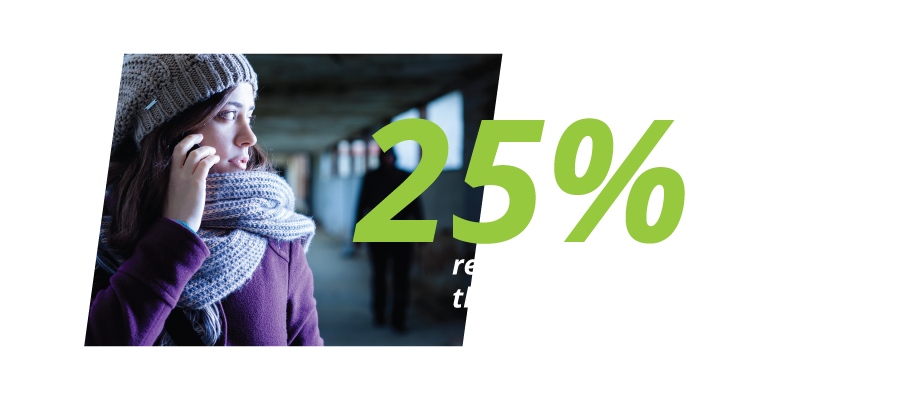A crime in the state of Georgia, stalking is a pattern of repeated and unwanted attention, harassment, contact or any other course of conduct directed at a specific person that would cause a reasonable person to feel fear.
Stalking May Include:
- Repeatedly showing up at the home, place of employment or other places the victim frequents
- Continuously calling and sending messages to the victim after they have been asked to cease contact
- Damaging the victim’s home, car or property
- Threatening to hurt the victim’s loved ones or pets
- Using technology to track or monitor the victim’s whereabouts and activities
Ignoring a perpetrator can be difficult, so oftentimes a victim will try to reason with or even threaten the person harassing them. However, these methods rarely work and can actually encourage the contact. The behavior of stalkers is unpredictable, which is what makes them so dangerous. Still, as a victim, you have the power over your own response.
In order to protect your personal safety, it is important to take steps toward harm prevention. At LiveSafe Resources, you can work with one of our trained advocates in creating a stalking safety plan. This is a tool specifically designed for you based on what you have experienced. It is a combination of suggestions and responses that will reduce your risk of harm, such as changing your routine, improving your phone and online security, and keeping a log of the occurrences.
Safety Tips
When dealing with a stalker, it is imperative to take threats seriously. Trust your instincts and make sure you have trusted people in your life that you can rely on. Try to memorize emergency numbers. Additionally, it is helpful to keep a log or other documentation of the incidents to record the pattern of harassment, which may be needed by the police now or in the future. For further safety tips, visit the National Stalking Resource Center.
At Home
You are especially vulnerable in your home. Fix any broken windows or doors, change the locks, and know your escape routes. Give your children a code word that tells them when they need to leave or a hand signal to your neighbor that tells them to call the police. Inform your neighbors, landlord or building manager of the situation and provide them with photos and descriptions of the perpetrator. In the event that you may need to leave suddenly for safety, you can pack a go-bag or a “stalking sack”in advance.
At Work or School
These places can be a large part of your routine and make for an easy target for a perpetrator to find you. Give a photo of the perpetrator to security, supervisors and friends, and make sure they know not to give your address or phone number to anyone. You can also provide the administration with a copy of your protective order, if you have one.
On Your Phone
Smart phones have become a much more commonplace tool for surveillance. With location services, cameras and microphone tapping and privacy settings from mobile applications, it is easier than ever to monitor a victim. Stalkers also use spyware, which keeps track of all activity including messages and websites. To best protect yourself, turn off location sharing and Bluetooth, check your privacy settings, use a passcode to access your phone and make sure your applications aren’t accessing your private information.
On Your Computer
Spyware is easy to install on a computer and hard to detect. Someone can send it in an email, game or over the Internet. If they have physical access to your computer, they can upload it directly or use a piece of hardware that appears to be a normal computer part. Make sure you install a firewall, anti-spyware and anti-virus software. Check any website for which you may have an automatic login and create new accounts if necessary.
LiveSafe Resources Can Help
If you or someone you know feels threatened or harassed, please call our:
24-Hour Crisis Line: 770.427.3390
Main Office:
770.427.2902
Hearing impaired TTY:
425.258.7081
Temporary Protective Order (TPO) Office:
770.528.8024
Asistencia en Espanol:
770.423.3569
Advocates are standing by to take your call 24 hours a day, 7 days a week to provide information and refer you to services or programs. This is a free, confidential resource available to those that are being stalked or to friends and family who are concerned that a loved one is being stalked.
LiveSafe Resources also offers the following services:
- Emergency shelter
- Temporary Protective Order (TPO) assistance
- One-on-one case management
- Free, confidential counseling and support groups for victims and family members
Visit our Services page to learn more about the domestic violence services we offer, or visit our Resources page to find out more.



